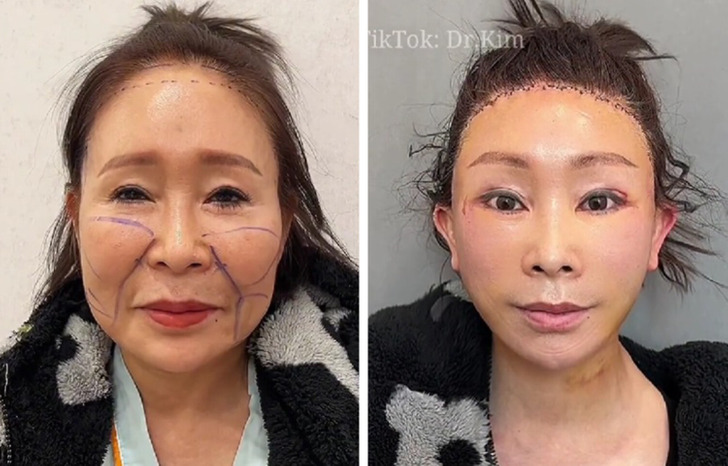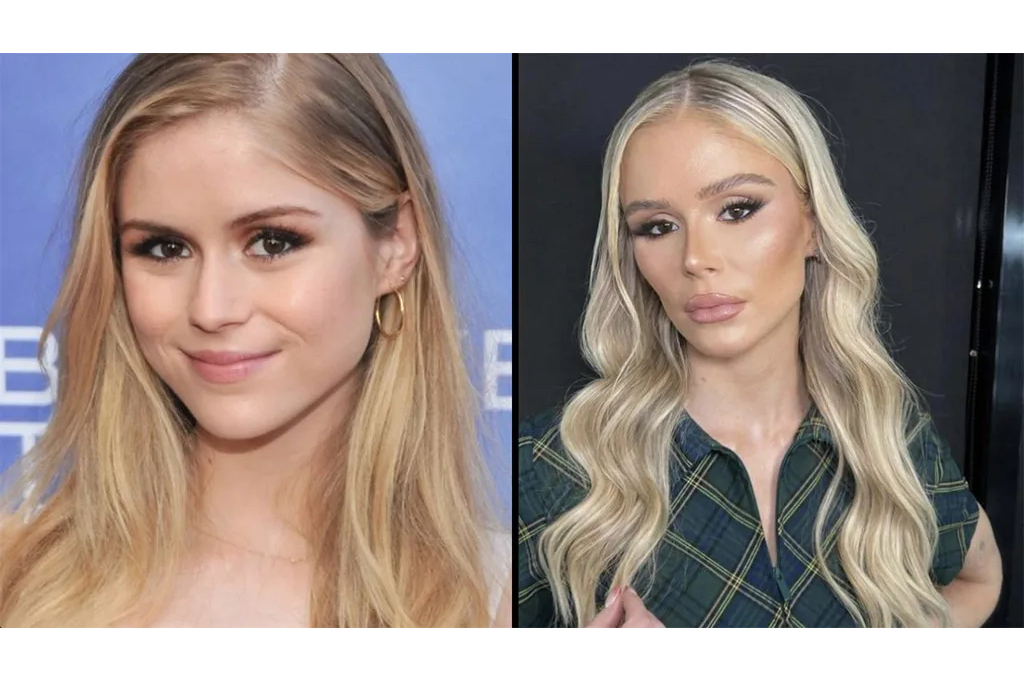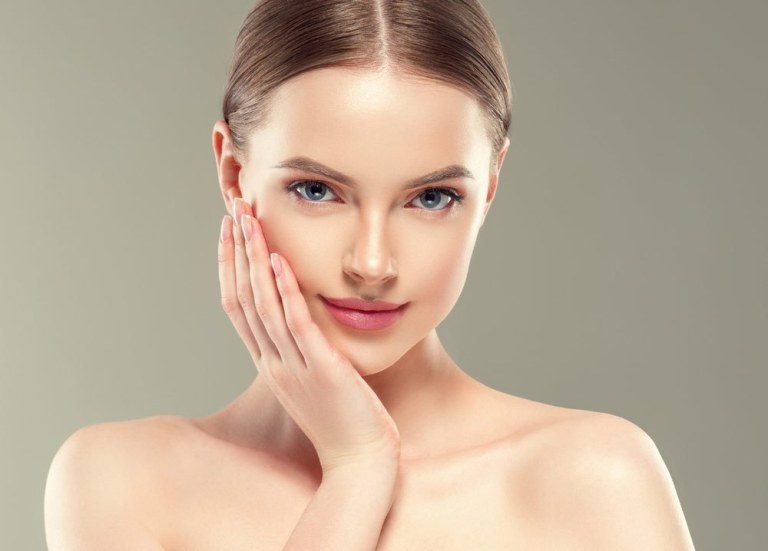Breast Augmentation Rancho Cucamonga: Tailored Solutions for Fuller, Natural-Looking
Breast Augmentation Rancho Cucamonga: Tailored Solutions for Fuller, Natural-Looking
Blog Article
Checking Out the Mental and Social Variables That Drive Individuals to Think About Plastic Surgery as a Means of Improvement
The choice to go after cosmetic surgical treatment often prolongs past simple aesthetic appeals, intertwining with social and emotional dynamics that merit thorough assessment. Factors such as self-worth, prevalent social appeal requirements, and the pervasive influence of social media converge to shape private motivations for medical enhancement.
The Role of Self-Esteem
Self-confidence dramatically influences an individual's choice to pursue plastic surgery. Individuals with low self-esteem often perceive themselves in an adverse light, resulting in sensations of inadequacy regarding their physical look. This negative self-perception can drive them to seek surgical interventions as a technique of enhancing their self-image. The wish for enhancement in one's look is frequently connected to an idea that such changes will boost their general self-worth and self-confidence.

Ultimately, the role of self-esteem in the decision-making procedure pertaining to plastic surgery highlights the complex interplay between body picture, individual satisfaction, and mental health and wellness. Recognizing this partnership is essential for medical care experts to guarantee that clients are making educated decisions rooted in sensible expectations and psychological wellness.
Societal Appeal Standards
Influenced by prevalent media representations and social stories, societal charm standards play a crucial function in shaping individuals' understandings of their very own bodies. These requirements are commonly defined by an idealized type of beauty that highlights traits such as balance, youthful vigor, and slimness. As these suitables are bolstered through various channels, including advertising and marketing, movie, and television, individuals often internalize these messages, resulting in discontentment with their natural look.
The implications of these social standards expand beyond aesthetic choices; they can influence self-worth, mental health, and interpersonal relationships. Individuals who view themselves as falling short of these requirements may experience sensations of inadequacy, motivating a need for cosmetic surgical procedure as a method of achieving societal authorization. This search is commonly fueled by the idea that satisfying these suitables will enhance not only physical look yet likewise social standing and personal fulfillment.

Influence of Social Network
The effect of social beauty standards is more intensified by the surge of social media sites systems, where curated images and idealized representations of elegance are ubiquitous. Users are constantly revealed to filtered and modified photos, which typically show unattainable physical characteristics. This exposure cultivates a society of contrast, leading individuals to analyze their very own look against these commonly impractical benchmarks.
Social media site influencers and celebs regularly advertise cosmetic treatments, normalizing the notion that surgical improvements are a viable means for attaining social perfects (plastic surgery rancho cucamonga). The visibility of these enhancements can develop an assumption that going through cosmetic surgical treatment is read review a typical practice, consequently influencing people to think about similar treatments as a pathway to improved self-esteem and social approval
In addition, the interactive nature of social networks permits prompt comments via likes and remarks, even more enhancing the wish to adjust to popular beauty requirements. Such communications can aggravate feelings of inadequacy learn this here now and drive individuals toward plastic surgery as a means of acquiring validation. Eventually, social networks plays an essential function in forming perceptions of elegance, which considerably impacts the decision-making procedures bordering plastic surgery.

Social Perspectives on Appearance
Throughout numerous societies, assumptions of look are deeply rooted in historical, social, and financial contexts, shaping individuals' sights on elegance and desirability. In numerous societies, appearance serves as a substantial marker of identification, affecting social status, expert possibilities, and individual relationships. As an example, in some societies, light skin is often related to wide range and opportunity, while others might idealize darker skin tones as symbols of stamina and credibility.
Furthermore, traditional charm requirements are usually bolstered via cultural narratives, media representations, and household affects, causing varying perfects throughout various regions (plastic surgery rancho cucamonga). In Western cultures, the focus on youth and fitness commonly drives people toward aesthetic improvement, while in particular Eastern cultures, more subtle changes straightened with standard looks might be liked
Globalization and the proliferation of electronic media have actually further complicated these characteristics, creating a hybridization of elegance ideals that goes beyond geographical boundaries. As people increasingly navigate these social stories, the stress to adapt certain look standards can bring about the desire for cosmetic surgical treatment, mirroring a complex interplay of individual aspirations and social values. Recognizing these cultural point of views is vital in dealing with the motivations behind cosmetic surgical procedure considerations.
Mental Impacts of Plastic Surgery
Numerous individuals looking for cosmetic surgical treatment report experiencing extensive mental impacts that can substantially change their self-perception and emotional well-being - plastic surgery rancho cucamonga. The wish for physical enhancement frequently stems from underlying concerns such as reduced self-esteem, body dysmorphic disorder, or societal pressures concerning beauty standards. For some, the immediate post-operative stage can cause a temporary increase in confidence and complete satisfaction why not check here with their appearance, fostering a feeling of empowerment
Nonetheless, these favorable sensations may not be enduring. Research study shows that while some people experience boosted self-esteem, others may face intense anxiety or anxiety if their expectations are not satisfied. This inconsistency can develop from impractical perfects perpetuated by media depiction and social stories surrounding charm.
Moreover, the psychological ramifications of plastic surgery extend beyond the individual. Relationships with family members and good friends might be stressed as social characteristics change, resulting in feelings of seclusion or alienation. Eventually, the mental effects of plastic surgery are diverse and complicated, calling for careful consideration by both possible patients and doctor to make sure educated decision-making and practical expectations.
Conclusion
In conclusion, the choice to go after cosmetic surgery is considerably affected by a combination of self-esteem concerns, societal appeal requirements, and cultural viewpoints on look. The prevalent reach of social media sites further exacerbates these stress, promoting impractical ideals that individuals frequently make every effort to acquire. Understanding these emotional and social elements is necessary for attending to the motivations behind cosmetic surgery, highlighting the need for a much more nuanced discussion surrounding charm and self-acceptance in modern society.
The choice to pursue cosmetic surgical treatment commonly prolongs beyond simple aesthetics, intertwining with mental and social dynamics that merit comprehensive evaluation. Inevitably, social media plays a critical duty in shaping perceptions of beauty, which dramatically impacts the decision-making processes bordering cosmetic surgical treatment.
As people significantly browse these cultural narratives, the stress to adapt to particular look criteria can lead to the wish for cosmetic surgical treatment, showing a complicated interplay of individual ambitions and cultural values.In verdict, the choice to seek cosmetic surgery is dramatically influenced by a combination of self-confidence concerns, societal elegance standards, and social perspectives on look. Recognizing these social and mental factors is essential for attending to the inspirations behind cosmetic surgical procedure, highlighting the need for a much more nuanced discussion bordering charm and self-acceptance in modern society.
Report this page